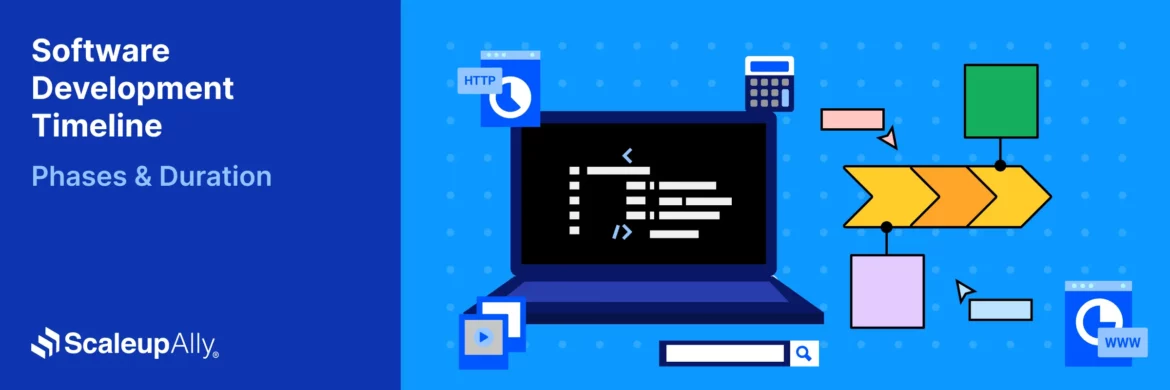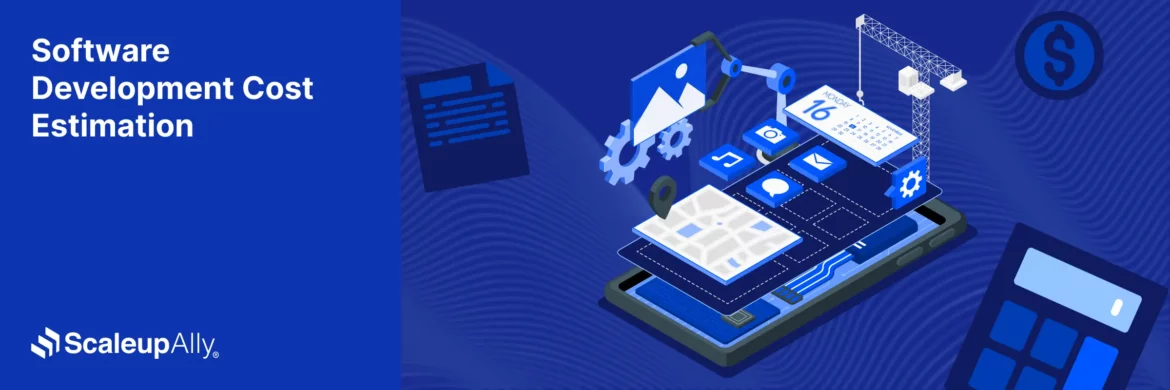
Is PHP still relevant? 10 Reasons why it is still used
Suprabhat Sen | October 31, 2023 , 10 min read
Table Of Content
PHP, a venerable and extensively employed programming language on the internet, has been the driving force behind countless websites, ranging from modest blogs to substantial e-commerce hubs.
Nevertheless, in the backdrop of newer programming languages and frameworks entering the scene, questions may arise concerning PHP’s continued relevance in 2023.
In March 2023, PHP continued to dominate web development, with a presence on 77.5% of websites, slightly down from 78.9% in 2022. PHP 7.4 is the most popular version (50.3%), followed by PHP 7.3 (24.7%), and surprisingly, PHP 5.6 retains 12.8% usage. The data underscores PHP’s lasting relevance in web development.
In this article, we will explore the reasons why PHP is still relevant and why it is worth considering for your development projects. We will delve into its history, examine its current relevance, and highlight ten compelling reasons why PHP remains a valuable tool in the programmer’s arsenal.
Key Takeaways
- PHP remains a widely used programming language, powering a significant portion of websites globally.
- Its adaptability, ease of use, and continuous updates make PHP relevant for modern web development projects.
- A mature ecosystem with frameworks, libraries, and tools enables efficient, scalable, and maintainable development.
- PHP’s cost-effectiveness and compatibility with popular databases make it ideal for startups and enterprise solutions.
- Extensive community support, documentation, and resources ensure developers can learn, implement, and maintain PHP effectively.
Why was PHP created?
PHP, which stands for “Hypertext Preprocessor,” was originally created by Rasmus Lerdorf in the early 1990s. Its inception was born out of the need for a simpler and more efficient way to manage Lerdorf’s personal website.
At that time, the web was in its infancy, and creating dynamic, database-driven web pages was a complex and laborious task. Lerdorf’s primary objective was to streamline the process of managing his website, which involved tasks like tracking the visits to his online resume and making updates to it.
The initial iteration of PHP was simply a collection of scripts and tools designed to serve this purpose. However, as more developers recognized the potential of this tool, it began to evolve rapidly.
Over time, PHP transformed into a powerful server-side scripting language capable of handling complex web applications.
Its open-source nature and community-driven development approach played a pivotal role in its growth, making it accessible and adaptable for a wide range of web development projects.
PHP’s Evolution and Versions
PHP has undergone significant evolution and has seen multiple versions and updates since its inception. The language has continually adapted to the changing needs of web development and has introduced various features and improvements to enhance its capabilities.
Here is an overview of the key versions of PHP:
PHP 3: Released in 1998, PHP 3 marked a significant step forward in the language’s development. It included support for external libraries and improved performance, making it more suitable for building dynamic web pages.
PHP 4: Released in 2000, PHP 4 introduced various enhancements, including a new engine, improved performance, and better support for web applications. This version laid the foundation for PHP’s widespread adoption in the early 2000s.
PHP 5: Released in 2004, PHP 5 brought fundamental changes to the language, including the introduction of the Zend Engine 2, which significantly improved performance and added new features such as object-oriented programming (OOP) support and improved memory management.
PHP 7: Released in 2015, PHP 7 was a major milestone for the language. It introduced substantial performance improvements, increased efficiency, and reduced memory consumption. Additionally, PHP 7 included new features such as scalar type declarations and return type declarations, enhancing the overall quality of the code.
PHP 8: Released in 2020, PHP 8 marked another significant leap in the language’s evolution. It brought a range of improvements, including just-in-time (JIT) compilation for improved performance, union types, named arguments, attributes, and more. PHP 8 further solidified the language’s position as a modern and efficient tool for web development.
The continuous development and refinement of PHP demonstrate its adaptability and commitment to meeting the demands of modern web development. With each new version, PHP has aimed to improve performance, security, and developer experience, ensuring that it remains a relevant and valuable programming language in the rapidly evolving tech landscape.
| PHP Version | Release Year | Notable Features |
| PHP 3 | 1998 | Added support for external libraries and extended Windows support. |
| PHP 4 | 2000 | Introduced Zend Engine for better performance and object-oriented programming support. |
| PHP 5 | 2004 | Enhanced Zend Engine 2, improved object-oriented programming, and XML support. |
| PHP 7 | 2015 | Significant performance improvements, reduced memory consumption, scalar type and return type declarations. |
| PHP 8 | 2020 | JIT compiler, union types, attributes, and other enhancements for performance and functionality. |
Is PHP still relevant?
Yes, PHP remains a relevant and widely used programming language in the realm of web development. Despite the emergence of various new technologies and programming languages, PHP continues to hold a significant position in the industry, powering a substantial portion of websites and web applications on the internet.
Its continued relevance can be attributed to several factors, including its adaptability, ease of use, extensive community support, and the robust ecosystem of frameworks and tools built around it.
Additionally, the consistent improvements and updates to the language have helped PHP stay current and competitive, making it a viable choice for a wide range of web development projects.
While other languages may have gained traction in specific niches, PHP’s versatility and established presence ensure that it remains a reliable and practical option for developers and businesses looking to build dynamic and scalable web solutions.
Latest Market Stats Around PHP Usage
Here are a few PHP, renowned for its user-friendly nature, adaptability, and swiftness, remains a vital server-side programming language in the realm of web development. Whether you’re a seasoned coder or just beginning your journey, here are some insightful statistics worth considering regarding PHP.
- 77% of all live websites use PHP.
- PHP powers 22% of the top 10,000 sites.
- The PHP used by Facebook in 2004 is still used today by around 18,000 websites.
- 81% of all PHP uses are still for web development.
- 25.8% of web developers prefer PHP.
- There are 700,000 searches per month on Google for the term PHP.
Some Popular websites using PHP are- OpenAI, Pinterest, Tumblr, Vimeo, Whatsapp, Wikipedia. WordPress.com.
10 Reasons Why PHP Is Still Relevant
1. Wide Adoption and Ecosystem
One of the key reasons for PHP’s enduring relevance is its wide adoption and mature ecosystem. PHP powers approximately 80% of websites on the internet, making it the go-to language for web development. This extensive usage has led to the development of a robust ecosystem, including numerous frameworks, libraries, and tools that facilitate efficient development.
2. Versatility and Flexibility
PHP’s versatility is another factor contributing to its continued relevance. It is a general-purpose scripting language that can be used for a wide range of applications beyond web development. With PHP, you can build command-line utilities, perform system administration tasks, and even create desktop applications.
3. Extensive Documentation and Community Support
PHP benefits from a large and active community that contributes to its development and maintenance. This vibrant community has produced extensive documentation, tutorials, and resources, making it easier for developers to learn and master PHP.
4. Compatibility and Legacy Codebase
With PHP’s long history and widespread adoption, there exists a vast codebase of legacy applications written in PHP. This legacy codebase presents both challenges and opportunities. For businesses with existing PHP applications, PHP’s compatibility ensures that these applications can continue to run and be maintained without major disruptions.
5. Continuous Improvement and Modernization
PHP has undergone significant improvements over the years, addressing many of the concerns raised by its detractors. The release of PHP 7.0 brought substantial performance enhancements, making PHP faster than ever. The subsequent versions have built upon these improvements, introducing features like scalar type declarations, return type declarations, and null coalescing operators, which enhance code quality and expressiveness.
6. Cost Effectiveness
Cost-effectiveness is a crucial consideration in software development projects. PHP’s open-source nature eliminates licensing fees, making it an attractive choice for startups, small businesses, and individuals with budget constraints.
7. Scalability
Contrary to popular belief, PHP can handle large-scale applications and websites. With the right architectural choices, performance optimizations, and caching mechanisms, PHP applications can efficiently handle high traffic volumes.
8. Support for Popular Databases
PHP boasts robust support for a wide range of databases, including MySQL, PostgreSQL, Oracle, and SQLite. This compatibility allows developers to seamlessly interact with databases and build database-driven applications.
9. Easy to Learn and Use
PHP’s syntax and structure are relatively straightforward and easy to learn, especially for developers with prior programming experience.
10. Job Opportunities and Market Demand
PHP’s continued relevance is evident in the job market. Numerous job opportunities exist for PHP developers, with companies seeking skilled professionals to maintain and enhance existing PHP applications.
Need Expert PHP Development Services?
While PHP continues to power over 75% of the web, the real impact comes from how it’s implemented. At ScaleupAlly, our PHP development services help businesses build scalable, secure, and high-performing applications tailored to their needs. From custom web solutions to enterprise-grade platforms, our team ensures your PHP projects are future-ready and optimized for growth.
Conclusion
In conclusion, the question of whether PHP is still relevant can be confidently answered with a resounding “yes.”
PHP has not only stood the test of time but has also evolved and adapted to meet the ever-changing needs of web development. Its enduring relevance is underpinned by a combination of factors, including its widespread adoption, versatility, community support, and consistent improvements.
Whether you’re a seasoned developer or a business looking to embark on a new web project, PHP’s continued prominence in the tech landscape makes it a reliable and practical choice for creating dynamic, scalable, and cost-effective web solutions.
Frequently Asked Questions
Q: Is PHP a dying language?
While the popularity of PHP may have decreased compared to its glory days, it is far from a dying language. PHP continues to be widely used, powering approximately 80% of websites on the internet.
Q: Can PHP handle large-scale applications?
Yes, PHP can handle large-scale applications with the right architectural choices and performance optimizations.
Q: Can PHP be used for purposes other than web development?
While PHP is primarily used for web development, it is a general-purpose scripting language that can be used for other applications as well.
Q: Does PHP have good community support and resources?
Yes, PHP benefits from a large and active community that contributes to its development and maintenance. Extensive documentation and tutorials.
Related Blogs

Top 20 Emerging Technologies of 2026
Discover the top 20 emerging technologies of 2026. Explore which innovations are driving change across healthcare, finance, manufacturing, and other crucial industries.
ScaleupAlly Team
Dec 16 ,
9 min read

Software Development Timeline: Phases, Duration & Estimation Guide
Understand the software development timeline with phase durations, key factors, hidden delays, and practical methods to estimate project time.
Suprabhat Sen
Nov 29 ,
16 min read

Software Development Cost Estimation Guide: What’s Included & What Affects the Price
Explore software development cost components, major pricing factors, and practical estimation methods to plan your project accurately from start to finish.
Suprabhat Sen
Nov 29 ,
14 min read


